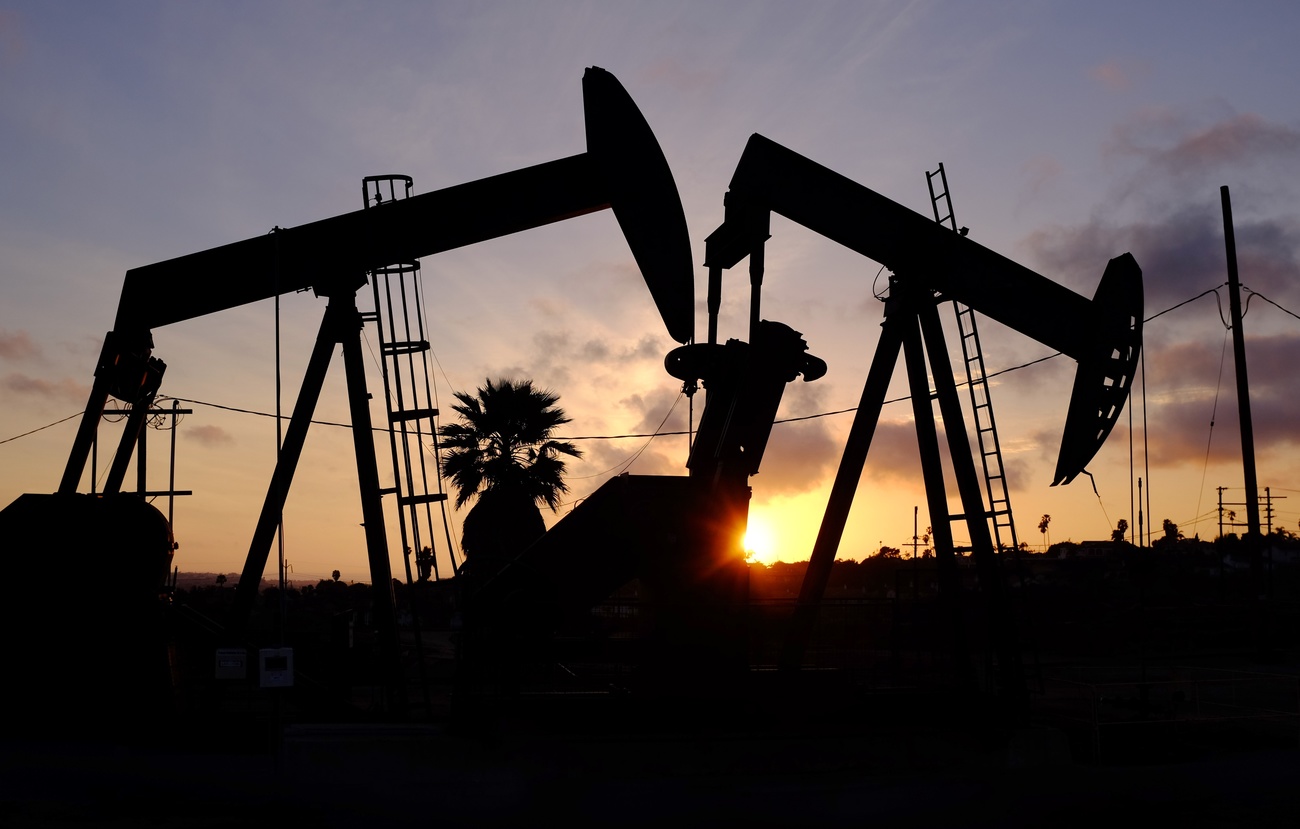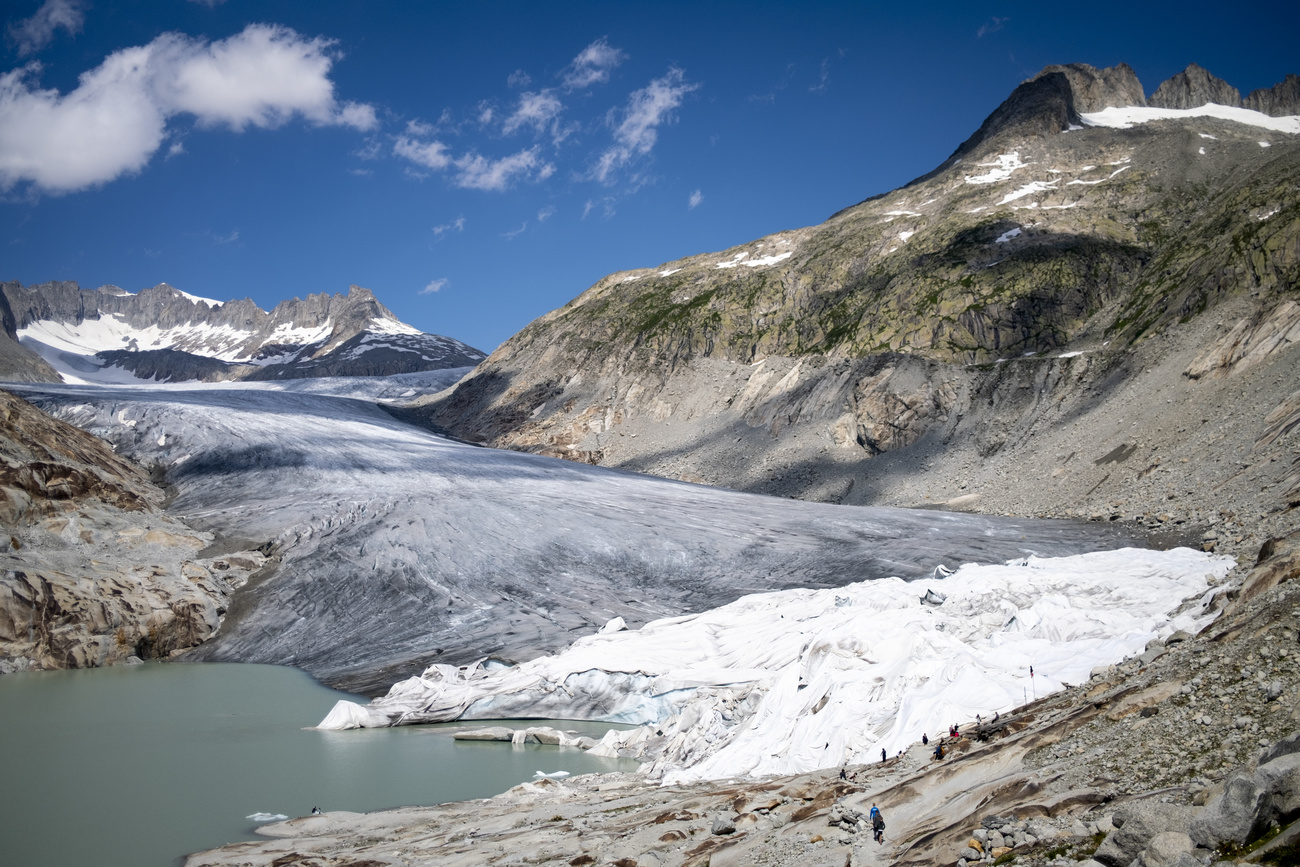
Pressure grows on SNB to turn back on fracking

Non-governmental organisations are calling on the Swiss National Bank (SNB) to phase out fracking investments. According to an economics professor, other measures would be more effective.
The Swiss Climate Alliance (SCA) has been putting pressure on the central bank for months. It calls for investments in companies that engage in fracking to be abandoned. On Monday, SCA presented the SNB with a corresponding petition with 60,000 signatures.
+ Swiss banks told to green up their act
According to the coalition of various organisations, the SNB currently holds securities in 69 fracking companies worth $9 billion. SCA calculates that the central bank is therefore responsible for seven million tonnes of CO2 emissions annually.
Fracking is a controversial way to extract oil or natural gas. A liquid is pressed into the ground at high pressure to make the rock more permeable. Critics warn of environmentally harmful emissions and possible danger to groundwater. Some countries have therefore banned fracking.
The environmental protection organisation Greenpeace is part of the alliance. Their campaigner and financial expert Peter Haberstich explains: “As a shareholder, the SNB is co-owner of these fracking companies. And it is therefore jointly responsible for the climate and environmental damage caused by it.”
If the SNB were to sell its shares in the companies and communicate this openly, this would be a very strong signal, says Haberstich. “This increases the financial risk for anyone who relies on fracking.” This may also lead to higher capital costs, such as rising interest rates, and thus to higher prices for the gas produced.

More
Sustainable investments boom in Switzerland
Economics professor Reto Föllmi from the University of St Gallen explains that a rapid sale of the securities would put downward pressure on the shares of fracking companies. “This of course depends on the liquidity in the market and the size of the SNB’s share package held.”
However, Föllmi does not believe that selling the securities would affect the cost of capital. “As long as there are investors around the world who want to invest in fracking companies, the financing costs will hardly change.” Investors would take advantage of the buying opportunities that arise due to temporarily lower share prices. “If you want to curb fracking, measures such as taxes on gas or direct bans are more effective.”
The loud criticism of the Climate Alliance is also heard by the SNB. During a press conference last Thursday, board member Thomas Moser explained that the SNB has had exclusion criteria for investments since 2013. “We have a very clear process and evaluate these criteria regularly.”
The SNB had already announced at the end of 2020 that it would exclude companies active in thermal coal mining. However, the institute does not comment on individual positions in the portfolio.

More
Swiss National Bank criticised for alleged $9bn fracking investment
This news story has been written and carefully fact-checked by an external editorial team. At SWI swissinfo.ch we select the most relevant news for an international audience and use automatic translation tools such as DeepL to translate it into English. Providing you with automatically translated news gives us the time to write more in-depth articles. You can find them here.
If you want to know more about how we work, have a look here, and if you have feedback on this news story please write to english@swissinfo.ch.

In compliance with the JTI standards
More: SWI swissinfo.ch certified by the Journalism Trust Initiative
















![The four-metre-long painting "Sonntag der Bergbauern" [Sunday of the Mountain Farmers, 1923-24/26] had to be removed by a crane from the German Chancellery in Berlin for the exhibition in Bern.](https://www.swissinfo.ch/content/wp-content/uploads/sites/13/2025/12/01_Pressebild_KirchnerxKirchner.jpg?ver=a45b19f3)










You can find an overview of ongoing debates with our journalists here . Please join us!
If you want to start a conversation about a topic raised in this article or want to report factual errors, email us at english@swissinfo.ch.